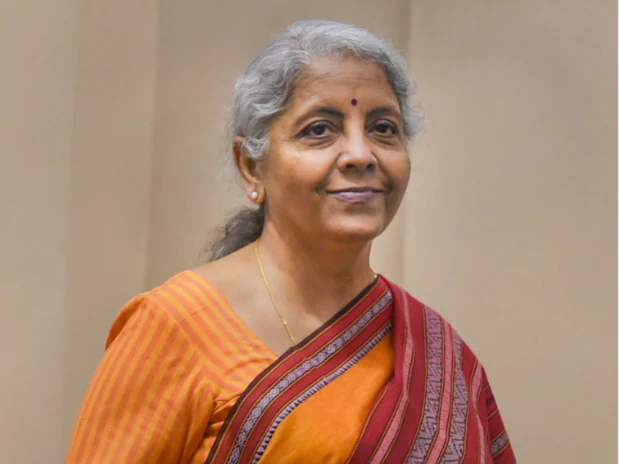[ad_1]
Union Finance Minister Nirmala Sitharaman on Tuesday asked big corporate houses to clear dues to micro, small, and medium enterprises (MSMEs) and said smaller businesses will need equal support from both the government and larger established firms.
“Support to the MSMEs is not just what the government can give. It is certainly largely dependent on that. There are pending payments from central and state governments and central and state-owned entities. But I was surprised to find that considerable due pending payments were also from the big industries,” the finance minister said at the Hero Mindmine Summit.
Sitharaman said while she could push public sector undertakings (PSUs) and departments and can request states, “I can only appeal to the industry. For all the tears that we shed for the MSMEs, can we limit the time by which the MSME get dues?”
It is encouraging that larger companies are including the amounts owed to MSMEs in their annual statements, but they also need to clear these dues, she said.
According to reports, India’s MSMEs were owed dues worth Rs 10.7 trillion at the end of 2021. The delays in payments are from private customers, government departments, and PSUs. Of this, MSMEs are owed Rs 8.73 trillion, or 80 per cent of the total pending amount. Micro industries are the worst hit with 65.73 per cent of their payments being delayed.
Sitharaman said in the public’s perception, all these dues are from the government, a perception she set out to correct.
The legally recommended period for payment of dues to the MSME sector in India is 45 days. However, in 2020-21 it stood at 195 days for micro industries.
The government has set up a portal, MSME Samadhan, for clearing unpaid federal dues to MSMEs. According to data on that website, Rs 19,499 crore worth of cases have been filed with regards to unpaid dues, and Rs 4,859 crore worth of cases have been dealt with.
Bilateral rupee trade
Sitharaman said many countries had shown interest for bilateral trade in the rupee after the RBI announced a mechanism recently. “It isn’t the ruble-rupee which was in the old format. Now this is a bilateral rupee trade formulation, which I am glad the RBI has come up at a time which was so critical.”
“Post-pandemic, India is coming up with so many out-of-the-box solutions. I would like to highlight the fact that we are a lot more open with the Indian economy, a lot more open in the way we are talking to countries, we are willing to have our digital platform become interoperable between countries to enable cross-border transactions,” she said.
Sitharaman asked the industry captains why they are hesitant in investing in manufacturing at a time when foreign investors had expressed so much confidence in India.
“This is the time for India… We cannot miss the bus,” she said.
Drawing a parallel between India Inc and mythological character Hanuman, Sitharaman said: “I would equally want to know from the Indian industry why is it that they are hesitant to invest.”
“Is it like Hanuman? You don’t believe in your own capacity, in your own strength and there got to be someone standing next to you and say you are Hanuman, do it? Who is that person going to tell Hanuman? It can’t certainly be the government,” Sitharaman added.
‘Freebies issue calls for debate’
Later in the evening, at another event in the Delhi School of Economics, Sitharaman reiterated an earlier point and said there needs to be more debate on the whole issue of ‘freebies’.
Speaking at the launch of a book co-authored by 15th Finance Commission Chairman NK Singh and Principal Secretary to Prime Minister, P K Mishra, Sitharaman said the authors had touched upon the topic.
“So he (Singh) has said the politics of freebies trumps the norms of such responsible behavior and says more debate is required. Absolutely well taken. Debate is required, no doubt,” she said.
The book also suggested the setting up of two new bodies: a fiscal council and a body to act as a bridge between Finance Commissions and the GST Council. The proposal for fiscal council has been raised by past Finance Commissions.
“I find a very powerful case being made for a fiscal council, which is not new to this book. And we again find NK Singh speak on the need for the GST Council and the Finance Commission to have better coordination through another institution,” the Finance Minister said.
Sitharaman argued that the GST Council itself, being just five years old, has not fully matured and stabilised as an institution yet. She said the kind of communication and coordination sought by the setting up of the new suggested bodies had already been seen in action by existing structures during the pandemic.
“The pandemic has shown the world that India’s institutions can rise to the occasion even if it’s a black swan event and address the stress points of the economy and we could build on and give impetus to growth. So, institutions which have not had an occasion to be fully invoked or fully set on course or fully function to respond to developing situations have all risen together and worked.”
[ad_2]
Source link



